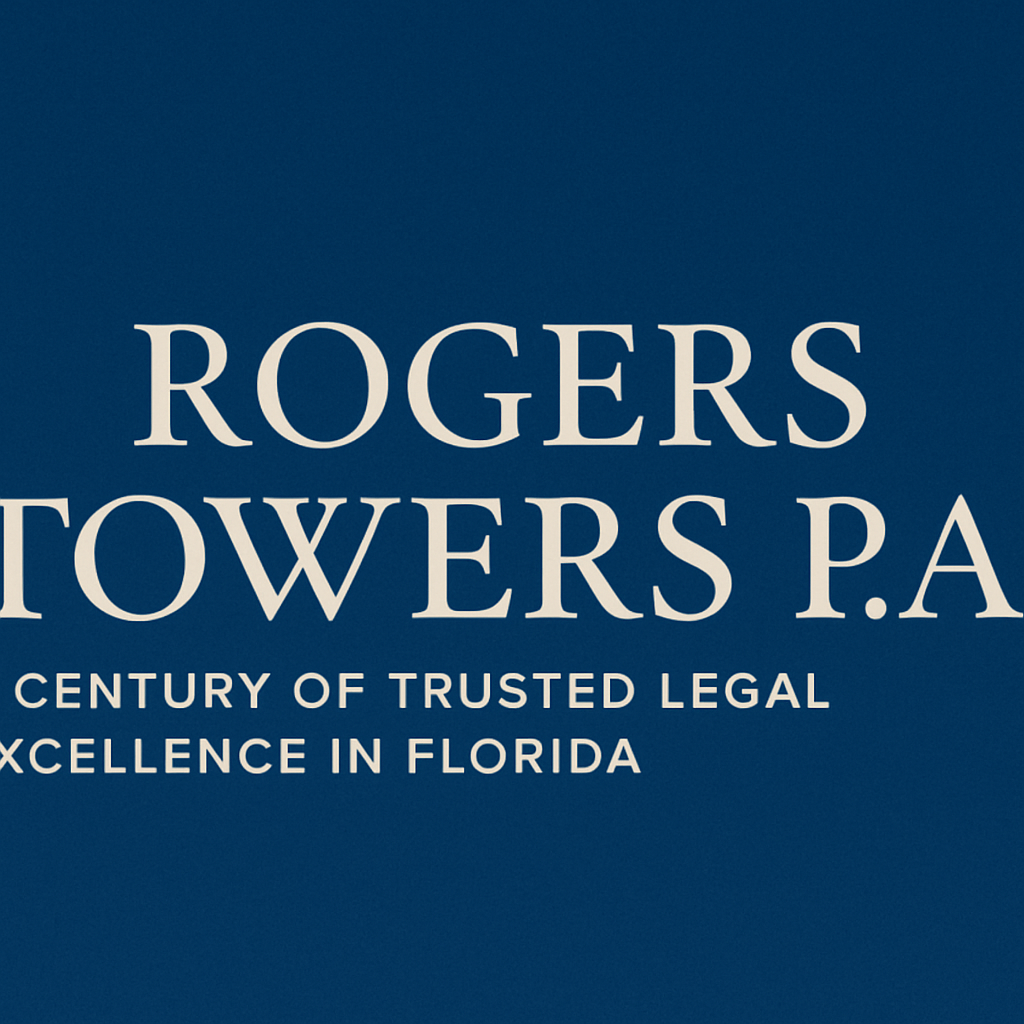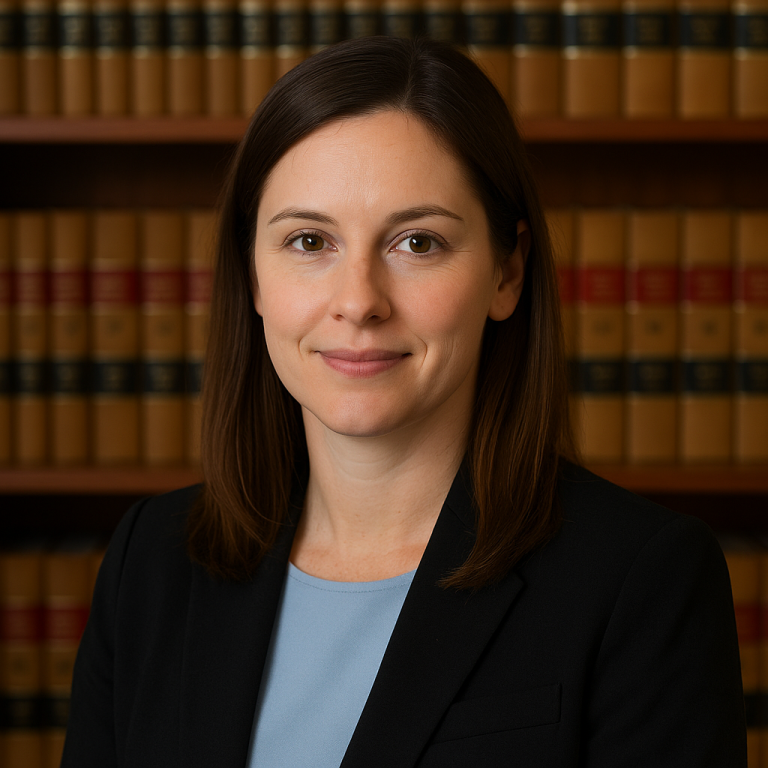Rogers Towers P.A. stands as a long-proven Florida law firm. Clients across the United States trust its practical approach. The firm blends historic roots and modern execution. Attorneys focus on clear advice and swift action. Matters move forward through concise strategies and steady follow-through. Clients seek results that match business realities. They also expect responsive communication and thoughtful planning. This article examines the firm’s evolution and service model. It also reviews key practices and leadership highlights. You will find transparent guidance for hiring counsel. You will see how the firm supports businesses and families. Rogers Towers P.A. continues to set a high bar.
Firm Snapshot Today
A quick view helps frame the details ahead. This snapshot sets up each subtopic that follows.
Offices and Regional Reach
Rogers Towers serves clients across key Florida markets. Locations include Jacksonville, Ponte Vedra Beach, Amelia Island, St. Augustine, and Fort Lauderdale. This network supports local insight and quick coordination. Clients gain coverage across North and South Florida. Matters often cross county lines and industry sectors. The footprint keeps service close to clients and courts.
Team and Culture
The firm fields a deep bench of attorneys. Experienced shareholders lead matter teams. Associates and specialists add research strength and speed. Support staff streamline filings and logistics. Training programs reinforce skills and ethics. Teams adopt practical tools that improve delivery. Culture emphasizes accountability and clear communication. Clients receive crisp updates and realistic timelines. Results matter more than noise or jargon.
Clients and Sectors
Business clients range from startups to large enterprises. Public entities and nonprofits seek counsel as well. Family clients receive careful planning and dispute support. Key sectors include real estate, construction, banking, healthcare, and retail. Technology, logistics, and hospitality also appear often. The client mix drives broad, cross-disciplinary knowledge. Attorneys share insights across offices to speed solutions.
Recognition and Rankings
Independent directories track market feedback and outcomes. Chambers USA recognizes the firm in Florida labor and employment. That guide reflects peer input and client references. Recognition also appears across other legal directories. Awards do not drive case strategies. They still reflect sustained performance over many years.
History and Legacy
Context explains current choices and processes. The firm’s past shows how standards formed.
Founding Story
Rogers Towers traces roots to early Jacksonville practice. Lawyers built the platform during Florida’s growth era. They pursued consistent results and steady client trust. Those values shaped policies that remain today. The firm’s name evolved through leadership transitions. The core promise stayed focused on clients.
Milestones and Longevity
The firm marked 120 years in 2025. That milestone highlights resilience through economic cycles. Leadership navigated booms, recessions, and regulatory shifts. Policies matured as new practice needs emerged. Offices opened where client demand rose. Attorneys adapted tools as legal tech advanced. Longevity signals repeat engagements and referrals. It also signals grounded expectations and disciplined matters.
Lessons From a Century
History teaches discipline over quick wins. Clients want reliable plans and honest cost views. They also want risk assessed in plain language. The firm’s processes reflect those lessons today. Experience informs staffing choices and budgets. Matter roadmaps reflect what actually works.
Practice Areas That Drive Outcomes
Practice depth often decides results. Each area below supports clear business goals. The overview sets the stage for detailed subtopics.
Corporate and Business Transactions
Companies need clean documents and predictable timelines. Attorneys draft and negotiate core agreements. They handle mergers, acquisitions, and joint ventures. They also structure equity and debt deals. Due diligence follows practical checklists and priorities. Deal timelines receive firm, realistic milestones. Clients receive concise issue lists and options. Execution stays focused on decisive final terms.
Real Estate, Land Use, and Development
Florida development requires local knowledge and agility. Attorneys guide zoning, entitlements, and permitting. They address impact fees and concurrency issues. Title review identifies liens and boundary risks. Commercial leases receive careful economic modeling. Closings proceed on documented checklists and schedules. Builders, lenders, and investors value speed and clarity. Litigation teams step in when disputes arise.
Complex Commercial Litigation
Disputes demand planning and cost control. Lawyers assess claims against business objectives. They map likely pleadings and motion practice. Early case assessment aligns budget and risk. Attorneys plan discovery to target key facts. Settlement options receive ongoing review at each stage. Trial teams craft focused themes and exhibits. Appeals receive separate strategies and timelines.
Labor and Employment
Workplace rules change often at state and federal levels. The team advises on policies and compliance. Issues include discrimination, wage claims, and restrictive covenants. Union matters and safety issues also arise. Investigations follow structured protocols and documentation. Litigation strategies consider optics and operational impact. Guidance aims to reduce repeat issues across sites. Training helps managers apply rules consistently.
Private Client, Estates, and Trusts
Families seek clarity on asset plans and taxes. Attorneys build wills, trusts, and healthcare directives. Plans adapt to business ownership and real property. Guardianship and elder issues receive sensitive handling. Disputes over estates follow careful procedures. Communication remains plain and respectful throughout.
Construction and Infrastructure
Projects involve deadlines, liens, and layered contracts. Counsel addresses procurement and payment structures. Claims often involve change orders and delays. Attorneys navigate defect claims and insurance issues. Public works add special compliance steps. Teams coordinate engineers, adjusters, and experts as needed. Goals focus on safe delivery and fair payment.
Banking and Financial Services
Lenders need precise documents and enforcement plans. Counsel prepares loan agreements and security instruments. Workout strategies protect positions and collateral value. Litigation seeks efficient recovery or re-trade solutions. Regulatory updates inform policies and risk systems. Banks value speed and clean paper trails.
Technology, Privacy, and Data
Businesses face growing data responsibilities. Counsel reviews vendor terms and security clauses. Incident response plans assign roles and timelines. Cross-border data issues receive tailored guidance. Contracts address AI usage and model ownership. Policies reflect current guidance and sector standards.
You now have a map of core services. Next, we focus on the people behind them.
People, Leadership, and Community Presence
Leadership defines culture and service quality. The next subtopics highlight development and civic roles.
Attorney Development and Mentoring
Training starts on day one for new lawyers. Programs teach research, writing, and client skills. Mentors provide feedback through real assignments. Trial teams include rising litigators in key steps. Corporate groups pair juniors on live deals. Reviews track progress against concrete competencies. Growth remains tied to client outcomes and ethics.
Legislative Leadership: Wyman Duggan
Wyman Duggan holds a leadership role in the Florida House. He serves as Speaker pro tempore for the 2024–2026 term. He continues his practice at the firm. That dual perspective adds insight on state policy. Clients gain context on regulatory risks and timing. Public service also reflects civic commitment and trust.
Litigation Distinction: Ed McCarthy, III
Ed McCarthy, III holds a major litigation honor. He is a Fellow of the American College of Trial Lawyers. That distinction reflects high skill and ethics. Trial practice demands clarity and credibility. Recognition aligns with strong courtroom performance. Clients value focused advocacy and preparation.
Community and Professional Engagement
Attorneys serve on boards and local initiatives. Pro bono projects address urgent community needs. Bar activities advance ethics and legal education. Events connect students to mentors and opportunities. Civic work strengthens relationships and awareness. Communities benefit when firms invest beyond cases.
Leadership sets a tone clients can feel. Next, we examine how matters move day to day.
The Client Experience: From Intake to Resolution
Process shapes outcomes and costs. These subtopics explain how services stay predictable.
Intake and Scoping
Projects begin with careful listening and notes. Attorneys define goals, constraints, and deadlines. They outline tasks and staffing needs early. Written scopes confirm deliverables and assumptions. Clients approve plans before major work starts. Surprises drop when teams share clear plans.
Communication and Updates
Clients get concise updates on set schedules. Reports cover progress, risks, and next steps. Calls supplement written updates when needed. Documents move through secure channels and workflows. Attorneys remain reachable across offices and time zones. Responsiveness builds trust and reduces stress.
Budgeting and Billing Transparency
Matter budgets align effort and value. Phases and tasks map to expected costs. Alternative fee options appear where suitable. Invoices provide detail without clutter. Questions get fast, direct answers from leads. Cost clarity supports long client relationships.
Cross-Office Collaboration
Teams share knowledge across locations. Subject experts join matters when value rises. Tools enable quick document access and version control. Conflicts receive review before work begins. Collaboration keeps pace during urgent deadlines. Clients see one firm, not separate islands.
Risk Management and Quality Control
Files pass through checklists and peer review. Templates reflect lessons from past matters. Privilege and confidentiality receive continuous attention. Calendaring reduces deadline risk across courts. Technology backups protect critical records and notes. Quality means fewer surprises and cleaner outcomes.
Sector Insight: What Different Industries Need Most
Industry context shapes strategy and timelines. The notes below highlight frequent pain points.
Real Estate and Development Companies
Entitlements set the pace of Florida projects. Zoning timelines affect financing and construction starts. Title issues can stall closings and draws. Attorneys coordinate surveys and cure actions. Leases demand careful economics and operating terms. Developers benefit from fast, accurate responses.
Construction and Engineering Firms
Projects hinge on schedules and quality control. Change orders require solid documentation and notice. Insurance language can decide coverage battles. Counsel helps align contracts and field practices. Claims analysis benefits from early expert input. Payment disputes move faster under clear procedures.
Banks and Credit Unions
Lenders track collateral and covenant health. Workout planning begins before defaults occur. Receiverships and foreclosures demand strict steps. Documents must match the lending playbook. Borrower communications require care and timing. Regulatory changes inform portfolio policies.
Healthcare and Life Sciences
Regulatory layers create complex compliance needs. Vendor agreements must protect privacy and data. Licenses and reimbursements drive cash-flow stability. Disputes can attract media or regulator attention. Crisis plans reduce harm and confusion. Legal teams help keep operations steady.
Technology and E-Commerce
Licenses and IP ownership define enterprise value. Data rules evolve across states and countries. AI clauses need clear scope and rights. Incident response strength builds brand trust. Vendor due diligence prevents later disputes. Fast action protects core digital assets.
How to Choose a Florida Law Firm
A structured approach beats guesswork and hype. These steps help buyers make smart choices.
Start With Fit and Focus
Define goals and timelines in writing. List the top three risks and constraints. Seek firms with clear experience in those areas. Ask for specific examples and outcomes. Request names of responsible leads on day one. Evaluate how each team proposes to start.
Assess Strategy and Communication
Ask for an early case or deal map. Request a sample update format and cadence. Confirm who calls decisions at each step. Seek candor on weak points and unknowns. Demand a playbook, not loose promises. Clarity today prevents friction tomorrow.
Compare Budgets and Fee Structures
Request a phased budget and assumptions. Ask how changes will be priced. Confirm billing contacts and response times. Compare detail levels across options. Lower cost means little without reliability. Choose value over headline rates.
Check Independent Signals
Review directory rankings and peer feedback. Confirm actual matters align to your needs. Scan press releases for relevant wins. Note civic leadership and speaking roles. External signals support internal diligence. They never replace direct conversations.
Client Best Practices That Improve Outcomes
Clients shape results through daily choices. These habits pay off across matters.
Centralize Facts and Documents
Create a single, secure document hub. Assign one owner for version control. Tag documents for quick retrieval during crunch time. Share facts in bullets, not paragraphs. Clarity saves hours and reduces fees. Teams move faster when records stay organized.
Decide Quickly on Pivotal Issues
Delays can raise costs and weaken leverage. Set internal deadlines for key calls. Designate backups to avoid bottlenecks. Share decisions in writing after each call. Momentum builds when choices stay timely. Opponents notice when teams move decisively.
Align Legal Strategy to Business Goals
Legal wins must support broader objectives. List metrics that matter to leaders. Adjust tactics when goals change midstream. Revisit risk tolerance as facts evolves. Document tradeoffs in simple terms. Everyone should know why plans changed.
Frequently Asked Questions
Is Rogers Towers P.A. only a Jacksonville firm?
No. Offices operate in several Florida cities. Coverage includes Jacksonville, Ponte Vedra Beach, Amelia Island, St. Augustine, and Fort Lauderdale. That reach supports statewide matters and regional insight.
Does the firm handle both deals and disputes?
Yes. Transactional teams handle deals and contracts. Litigation teams manage disputes in court and arbitration. Integrated planning helps prevent repeat issues.
How recognized is the employment practice?
Well recognized in independent directories. Chambers USA lists the group in Florida. Market feedback notes responsive service and solid outcomes.
Does the firm support private clients?
Yes. The team guides wills, trusts, and estates. Advisors help families plan for taxes and care. Disputes receive respectful, steady handling.
Are there recent leadership highlights?
Yes. A shareholder holds a senior Florida House role. Another shareholder joined a top trial lawyers’ college. Those roles reflect skill and civic trust.
What types of clients hire the firm?
Both businesses and families seek counsel. Sectors include real estate, construction, banking, healthcare, and tech. Public entities and nonprofits also engage the firm.
How can new clients get started?
Start with a clear scope and documents. Confirm goals, budgets, and deadlines in writing. Schedule regular updates and checkpoints.
Conclusion
Rogers Towers P.A. delivers practical counsel across Florida. The firm pairs historic depth and modern discipline. Teams emphasize clarity, speed, and measurable value. Clients gain steady plans and transparent budgets. Independent recognition supports a long record of results. Leadership roles reinforce public trust and community service. Businesses and families receive tailored strategies and follow-through. Choose counsel that aligns law and outcomes. Rogers Towers P.A. continues to set a high bar.
Ayesha Awais is a content writer for JudicialNexus.com, covering accident reports, injury-related news, lawsuits, and public safety updates. All content is informational in nature and based on publicly available sources.




